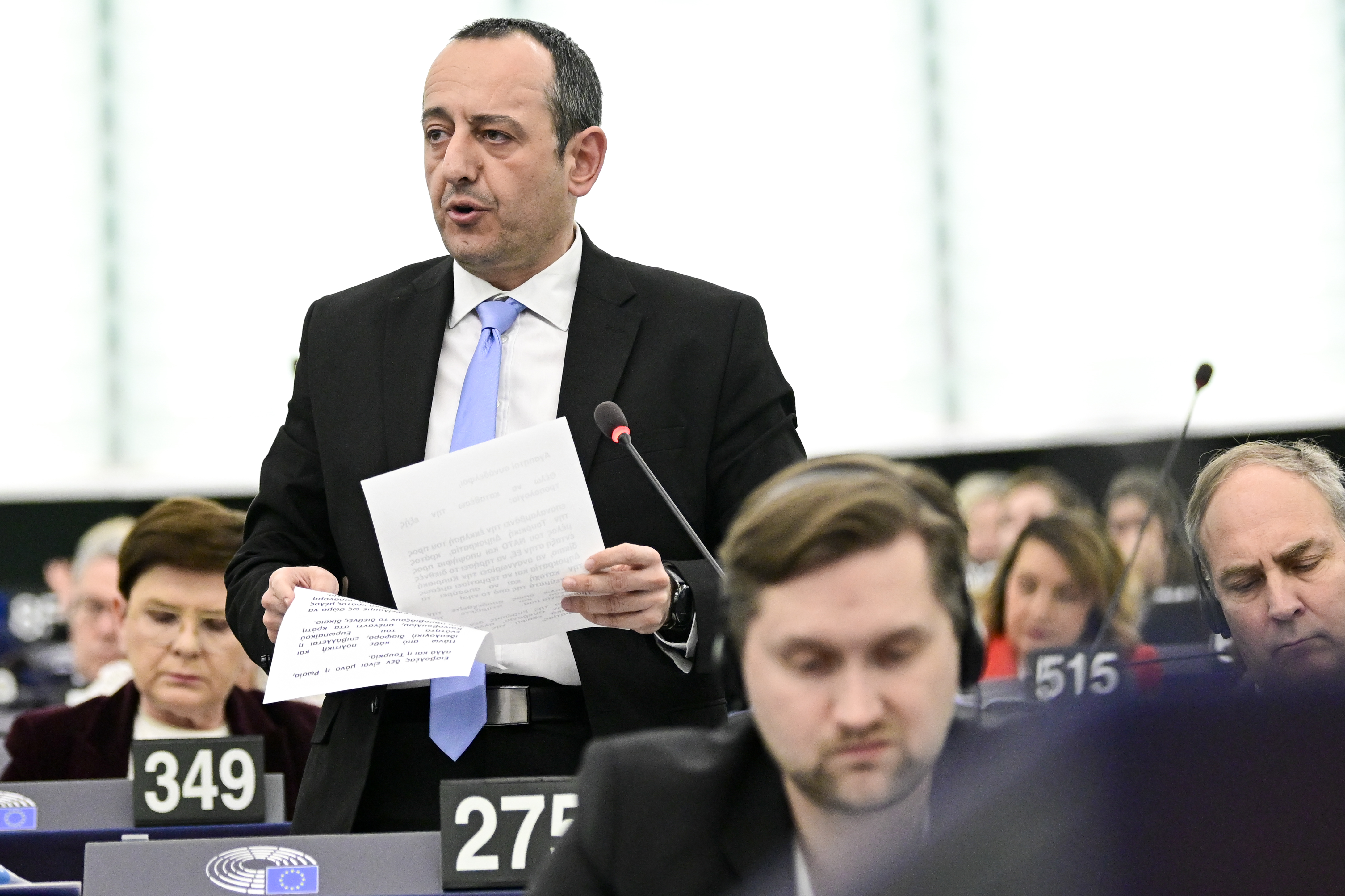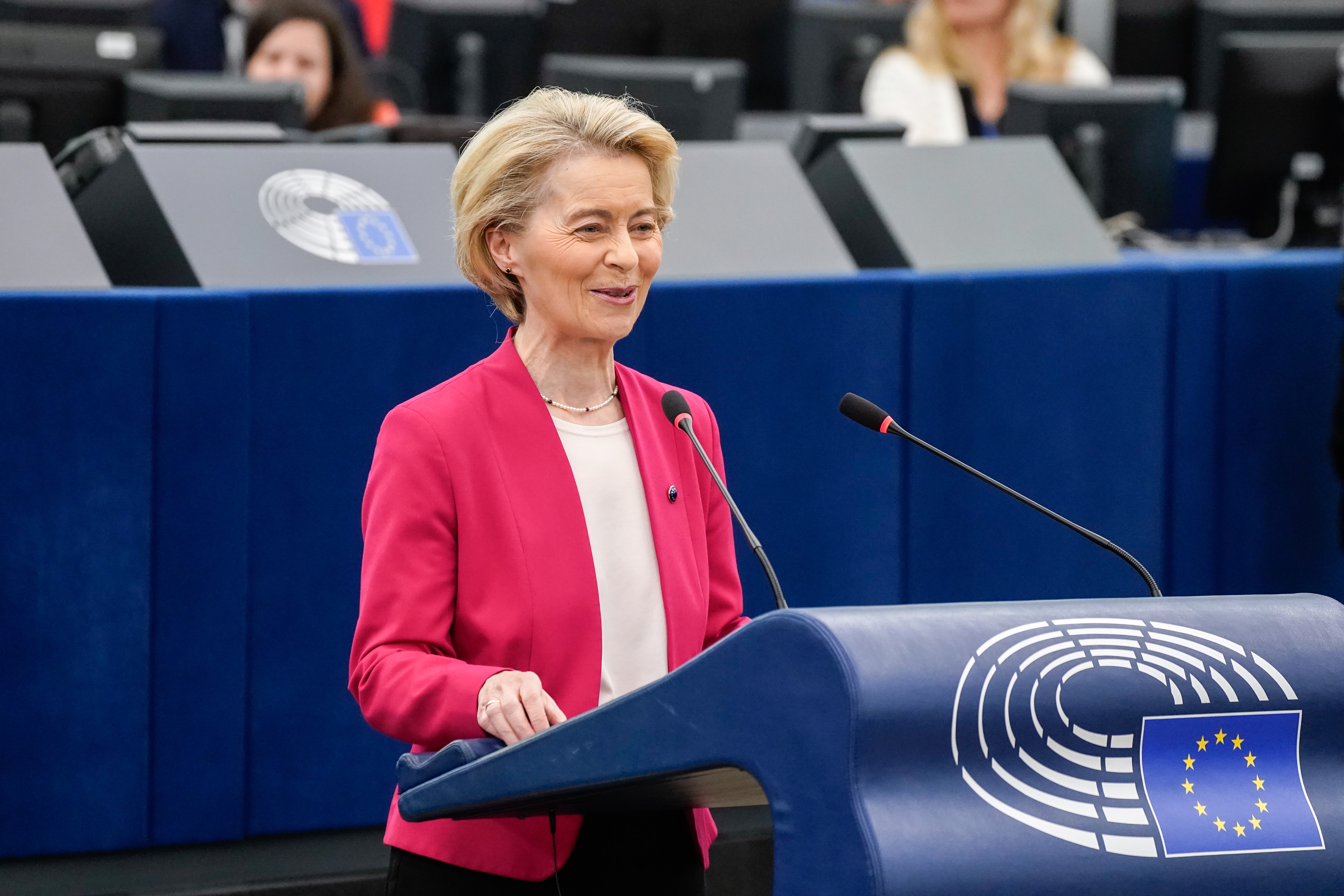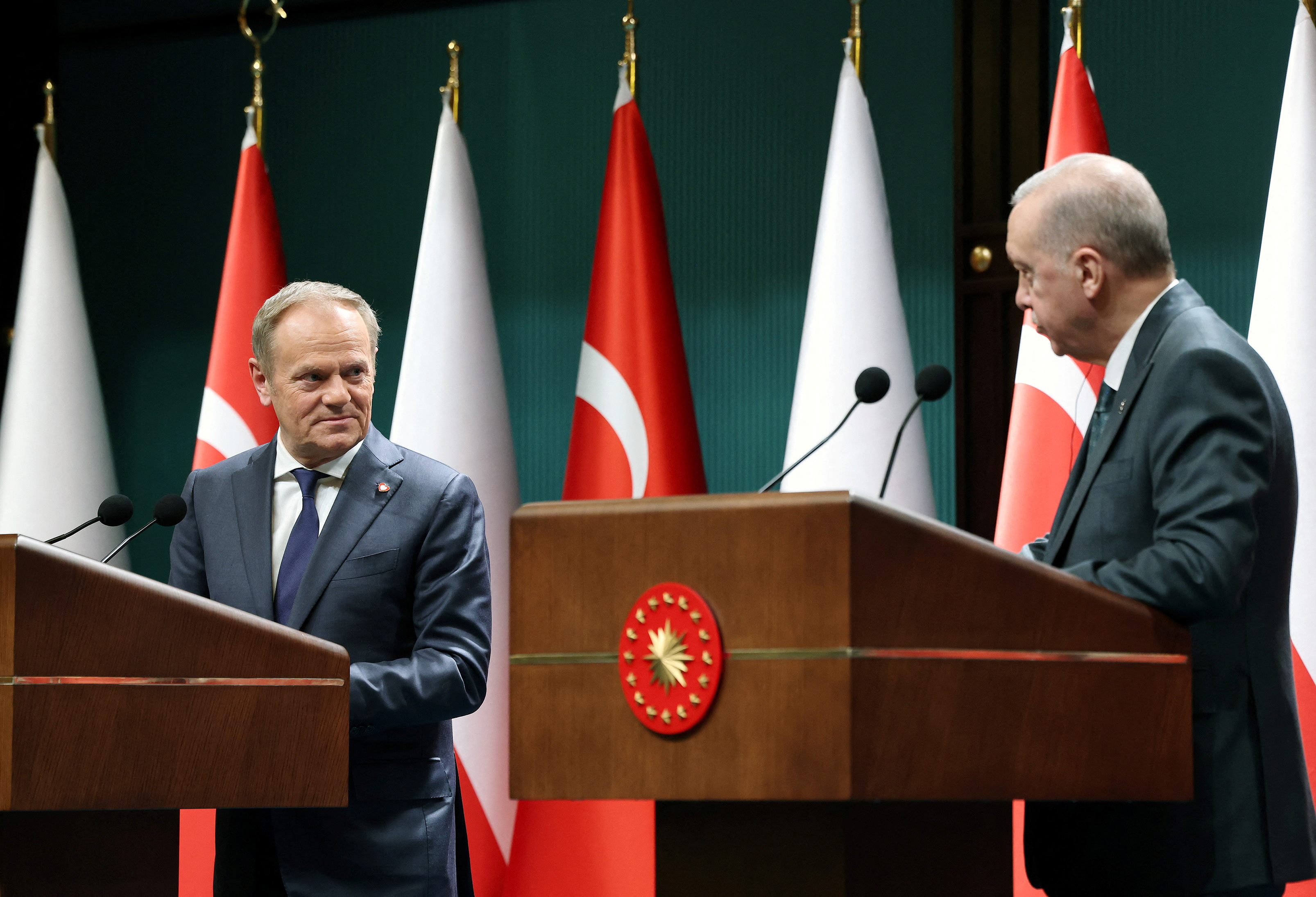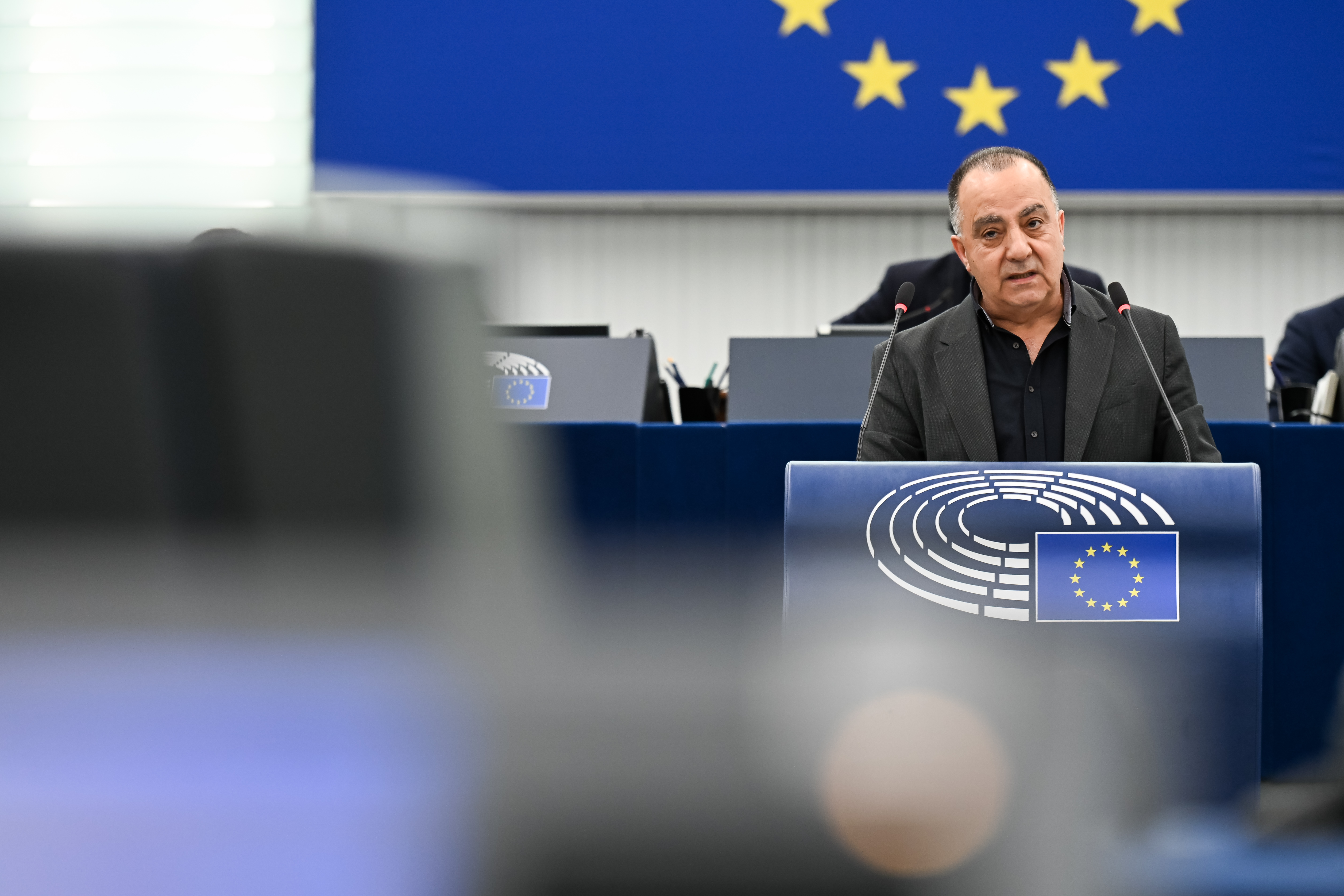The European Union’s “white paper on the future of European defence”, which aims to forge a plan for the bloc and the continent at large to bolster its defensive capabilities, passed a European parliament vote on Wednesday, with two amendments explicitly mentioning Cyprus added to it.
Both amendments were largely the same in terms of language and effect, with one being put forward by Akel MEP Giorgos Georgiou and the other by Elam MEP Geadis Geadi.
Georgiou’s amendment read that the EU “reiterates its call on Turkey, a Nato member, to withdraw its troops from Cyprus, an EU member state, and work constructively to find a viable and peaceful solution based on the relevant United Nations resolutions”, with all six Cypriot MEPs voting in favour of it.
Geadi’s amendment, meanwhile, read that the EU “reiterates its call on Turkey, a Nato member state and an EU candidate country, to abide by international law, recognise the Republic of Cyprus, and immediately end the occupation and withdraw its troops from the island”.
Georgiou was less than impressed by Geadi’s decision to table a near-identical amendment to his, telling the Cyprus News Agency after the end of the session that “Geadi essentially copied our amendment and submitted it orally, for communication reasons, obviously”.
He also pointed out that Geadi’s amendment made no reference to the UN’s resolutions on Cyprus, adding, “it is known that Elam … disagrees with the bizonal, bicommunal federation and even with the UN’s involvement in Cypriot affairs”, and confirming that he had voted against Geadi’s amendment.

The white paper at large called for the EU to “act urgently to ensure its own autonomous security, strengthening its partnerships with likeminded partners and significantly reducing its dependencies on non-EU countries”.
“The EU is not at a turning point in its history and construction,” it added, saying that “a ‘business as usual’ approach is no longer an option as it would lead to the end of a safe and secure Europe”.
It also endorses European Commission President Ursula von der Leyen’s “ReArm Europe” plan, which could see €800 billion spent on building up the continent’s military capabilities.
Four of Cyprus’ six MEPs voted in favour of the white paper, with Disy’s Loucas Fourlas and Michalis Hadjipantela, Diko’s Costas Mavrides, and Elam’s Geadis Geadi voting in its favour, while Akel’s Giorgos Georgiou and independent Fidias Panayiotou voted against.
In total, the white paper received 419 votes in its favour and 204 against, with 46 abstentions. It will now be put before a European Council meeting attended by President Nikos Christodoulides and 26 other EU heads of government on March 20.

The vote comes against the backdrop of Turkey’s role in the European defence conversation becoming more central as the continent looks closer to home for arms as the United States steps back from its stance in Ukraine and potentially its commitments to Nato.
Four Cypriot MEPs, Fourlas, Mavrides, Geadi, and Georgiou, had on Tuesday attempted to dissuade their colleagues from endorsing further Turkish involvement in Europe’s defence umbrella.
“Turkey, a country which illegally occupied half of my homeland, cannot participate in this effort towards a European defence mechanism … Turkey has not even complied with the sanctions against Russia and has not recognised Hamas as a terrorist organisation,” Fourlas said.
Georgiou was no less scathing of the idea, with his party having had harsh words for Ukrainian President Volodymyr Zelenskiy and the Cypriot government’s support for him over the weekend.
“You will impoverish the peoples of Europe and enrich the merchants of death … To have a common defence, their must be a common foreign policy, but there are many unwilling to do so,” he began.
He added, “you are holding rallies proclaiming Turkey as the guarantor of European security, supposedly to support Ukraine and its people”, before going on to speak of a “vulgar bargain” over plans to extract Ukrainian natural resources in exchange for its defence.
Geadi said the idea of a common European defence is “a move in the right direction”, but, like all his Cypriot colleagues, was in no mood to accept Turkish involvement, speaking of “audacity” on the country’s part to say Europe “cannot fail to include it” in its defence plans.
“Not only should Turkey not be allowed to do this, the EU must proceed with sanctions against it and a veto on its equipment,” he said, while also describing the country’s President Recep Tayyip Erdogan as a “sultan”.
Mavrides said that while a unanimous decision was made to secure the EU’s borders, “these borders are already being violated by neo-Ottoman Turkey, which occupies part of the EU in Cyprus”.
“Paradoxically, however, neo-Ottoman Turkey is not considered a threat, but an ally in European defence, as a member of Nato … This is the hypocrisy which divides us,” he said.

However, their words are not echoed by Donald Tusk, former European Council president and current prime minister of Poland, the incumbent holder of the Council of the European Union’s rotating presidency.
He visited Ankara on Wednesday, calling for Turkey to take a much more central role in Europe’s defence.
“I have given President Erdogan a clear proposal for Turkey to take on the greatest possible co-responsibility for the peace process, guaranteeing stability and security in our entire region,” he said at a press conference after the meeting.
“We know well what we want for Ukraine, what we want for the region, what we want for Europe,” he added.
He went on to call for Turkey’s joining of the EU to be a “realistic and achievable process”, adding, “we have always supported Turkey in this regard and will continue to do so”.
Erdogan described EU membership as one of Turkey’s “strategic goals”, adding, “if the EU wants to prevent or even reverse its loss of power and altitude, it can only achieve this by making Turkey a full member”.






Click here to change your cookie preferences